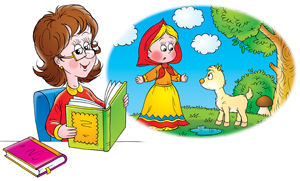This unique combination of effort, knowledge and experience constitutes what Lengalia is today, a portal specialized in helping you learn Spanish online.
Movies are only used for a short while as didactic tools in the lessons. The main reason for this is, as you can imagine, that it has “recently” become more and more popular to integrate multimedia teaching material into language teaching. This includes for example the use of projectors, computers and much more. At first glance, this seems to be very simple because in principle, you only need a television and a video recorder for the presentation of a video. But in fact, it is not that easy. Many schools do not have these materials or they have too little of them and they cannot often be used by a class because they should be available to all teachers. That concerns the technical aspect. From a didactical point of view, the presentation of a movie demands a good preparation of the teacher because he has to search for and to choose suitable material.
When all of this is done and all of these more or less important difficulties are overcome, you will be rewarded with a large number of teaching material and many possibilities. The use of audiovisual media in class – so also of videos to learn spanish – is really enriching and motivating because they make it possible for the students to get to know learning from another perspective. Regarding the movies, it can be, on the one hand, of course exhausting, if you do not understand everything, but on the other hand, this medium represents a good possibility to train the listening comprehension. What do I want to say with that? The videos show real communication – of course only within the scope of fiction. But through these videos, you can improve your communicative competences. Beyond that, it is possible to develop the listening comprehension and much more, if the right scenes are shown.
Even if you have already watched movies in class, the student can also improve his oral competences at home through this type of teaching material. But how can you use videos and movies to learn languages? The foreign language student who is reading this will think at first glance that this is very easy. But usually, we watch movies at home to relax. Contrary to that, to deal with a movie whose language we do not speak can be very exhausting. I do not want to deny that at the beginning, you have to get used to it, you have to be more concentrated and maybe, you should start with a movie with subtitles – if you want in your native language and later, you can go on with subtitles in the foreign language. When you have passed this “training phase” in favour of the development of these competences (especially the training of the listening comprehension, but also of the oral expression and of the interaction), the success will be considerable. And you can even learn while you are having fun. The use of this medium for children is also a good idea because the language which is used is mostly not very complex. The clever (or trained) ones can also just go to the cinema and watch movies in foreign languages. Like this, you can connect learning and a popular leisure activity.
Movies and videos show the language in a charming and completely other way than they seem to be for most students in class. The learning process, which is stimulated through this, is effective. The conversations and situations, which are shown, are authentic, and beyond that, the movie is also a teaching material which motivates. The reason for that is that it is freed from all the negative things, which are always associated with teaching in class or with autonomous learning.





